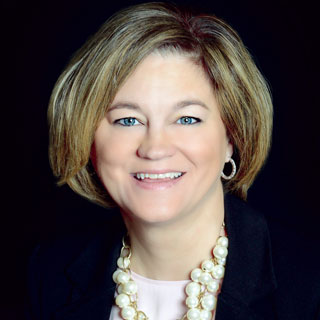
I’ve always been a big believer that the words we choose to use really do matter. They help us understand; they convey emotion and information; and connect us to one another. What will the words of 2020 do for us and to us?
As we mark month seven of the pandemic, I took some time today to look back on my notes starting March 13, 2020. I looked for words that stood out, words that prior to that date we may have never heard nor been aware of. These words at the time meant one thing and today mean something entirely different. When in our history has that happened?
In the course of just seven months, words and phrases have taken on a life of their own. They aren’t just words: They are topics for debate, fuel for bitter arguments, tools for discussion and will evoke emotion in people who might otherwise have been silent. Seven months in, every conversation will include some of these words if you live and work in long-term care. If you aren’t inside our walls, these words still matter; your perspective may be different, but chances are the meanings of the words have also changed for you.
Here are seven categories of just a few of the words raining on us during this 2020 storm. The quotes are mine, maybe not word for word; then and now.
- COVID-19, pandemic, virus, coronavirus, rona
Then: “This can’t last long, can it?”
Now: “This has changed everything.”
- Wear a mask, social distance, six feet apart, handwashing, personal protective equipment, N95, “don’t touch your face”
Then: “Seems simple enough.”
Now: “We still can’t contain it?”
- Mitigation efforts, slow the spread, flatten the curve
Then: “Makes sense; can’t last long.”
Now: “Even if one person in our community tests positive, we can’t move forward.”
- Isolation, compassionate care visits, window visits, outdoor visits
Then: “We can do this to keep our residents safe.”
Now: “We cannot put our residents through this any longer. They need to be with their families.”
- Nasal swabs, PCR, surveillance testing, brain tickler, trigger testing
Then: “Wait, what?”
Now: “It’s not so bad getting tested every week.”
- Guidance, mandates, regulations, recommendations
Then: “We are used to this. It will be fine.”
Now: “The next change will come again soon. We’ve lost faith.”
- Exposure, quarantine, outbreak, contact tracing
Then: “Terrifying.”
Now: “Life.”
My list and categories certainly aren’t all inclusive. What’s missing? How have words or phrases changed for you over the past seven months? Do you hear a word or phrase now and stop to consider how its meaning has changed for you, for your friends, families or team members? Have words lost their punch because of the time that has passed? Or have they become more powerful?
As leaders, we need to spend time talking about how our views have changed, grown or evolved during this time. It’s an important step so that in the future as we teach, talk about, and reflect on the “language of 2020,” we have an appreciation for how the meanings or feelings behind words changed over the course of a few months.
There are obviously words and phrases missing from the “language of 2020.” I’ve commented on the language only inside the pandemic world. As I consider this year, the words we choose to use matter now more than ever. They spark so many emotions. One person’s definition may be entirely different from another’s. Do we have room for this in how we communicate with one another? I believe we do, but as the storm of 2020 passes, we must be more patient, more understanding, offer grace and consider empathy. I believe that is what will help us truly understand one another.
By the way, there are words that have remained the same during 2020. For me, the words resilience, optimism, compassion and hope have kept me grounded. What words have been your umbrella during this storm?
Julie Thorson was the 2018 recipient of the LeadingAge Dr. Herbert Shore Outstanding Mentor of the Year award. Thorson is currently a coach for the Leading Age’s Larry Minnix Leadership Academy. Her “Living Leadership” blog was named the 2016 “Best New Department” Bronze Award winner by the American Society of Health Publication Editors. The president and CEO of Friendship Haven, a life plan community in Fort Dodge, IA, Thorson is a coach’s daughter at heart. A former part-time nursing home social worker, she is a licensed nursing home administrator and completed Leading Age’s Leadership Educator Program last summer.




